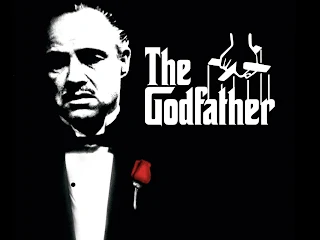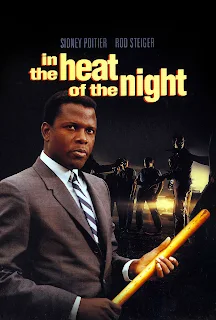 |
Self-Portrait
with Straw Hat,
Paris,
Winter 1887–88.
Metropolitan
Museum of Art,
New York[c] |
Vincent van Gogh (1853-1890)[a]
Vincent Willem van Gogh (Dutch: [ˈvɪnsɛnt ˈʋɪləɱ vɑŋ ˈɣɔχ]; 30 March 1853 – 29 July 1890) was a Dutch post-Impressionist painter whose work, notable for its rough beauty, emotional honesty and bold color, had a far-reaching influence on 20th-century art. After years of painful anxiety and frequent bouts of mental illness,[1][2] he died aged 37 from a gunshot wound, generally accepted to be self-inflicted (although no gun was ever found).[3][note 2] His work was then known to only a handful of people and appreciated by fewer still.
Van Gogh began to draw as a child, and he continued to draw throughout the years that led up to his decision to become an artist. He did not begin painting until his late twenties, completing many of his best-known works during the last two years of his life. In just over a decade, he produced more than 2,100 artworks, consisting of 860 oil paintings and more than 1,300 watercolors, drawings, sketches and prints. His work included self portraits, landscapes, still lifes, portraits and paintings of cypresses, wheat fields and sunflowers.
Van Gogh spent his early adulthood working for a firm of art dealers, traveling between The Hague, London and Paris, after which he taught for a time in England. One of his early aspirations was to become a pastor and from 1879 he worked as a missionary in a mining region in Belgium where he began to sketch people from the local community. In 1885, he painted his first major work The Potato Eaters. His palette at the time consisted mainly of somber earth tones and showed no sign of the vivid coloration that distinguished his later work. In March 1886, he moved to Paris and discovered the French Impressionists. Later, he moved to the south of France and was influenced by the strong sunlight he found there. His work grew brighter in color, and he developed the unique and highly recognizable style that became fully realized during his stay in Arles in 1888.
The extent to which his mental health affected his painting has been a subject of speculation since his death. Despite a widespread tendency to romanticize his ill health, modern critics see an artist deeply frustrated by the inactivity and incoherence brought about by his bouts of illness. According to art critic Robert Hughes, van Gogh's late works show an artist at the height of his ability, completely in control and "longing for concision and grace".[4]
Quotes·Quotations by Vincent van Gogh[b]
Appearance
¶ I often think that the night is more alive and more richly colored than the day.
@ One may have a blazing hearth in one's soul and yet no one ever comes to sit by it. Passersby see only a wisp of smoke rising from the chimney and continue on their way.
Others
@ If only we try to live sincerely, it will go well with us, even though we are certain to experience real sorrow, and great disappointments, and also will probably commit great faults and do wrong things, but it certainly is true, that it is better to be high-spirited, even though one makes more mistakes, than to be narrow-minded and all too prudent. It is good to love many things, for therein lies the true strength, and whosoever loves much performs much, and can accomplish much, and what is done in love, is well done. [The Letters of Vincent van Gogh to his Brother, 1872-1886 (1927) Constable & Co]
@ Poetry surrounds us everywhere, but putting it on paper is, alas, not so easy as looking at it. [As quoted in The Complete Letters of Vincent Van Gogh, Vol. 2 (1958) New York Graphic Society, p. 12]
Images
Works
.jpg) |
| Vincent van Gogh (1853-1890), Cows in the Meadow, August 1883, oil on canvas, 31.4 x 43.8 cm, Museo Soumaya, Mexico City, Mexico |
Footnotes
[1]^ The pronunciation of "Van Gogh" varies in both English and Dutch. Especially in British English it is /ˌvæn ˈɡɒx/ van-gokh or sometimes /ˌvæn ˈɡɒf/ van-gof. U.S. dictionaries list /ˌvæn ˈɡoʊ/ van-goh, with a silent gh, as the most common pronunciation. In the dialect of Holland, it is [ˈvɪnsɛnt fɑŋˈxɔx], with a voiceless V. Van Gogh grew up in Brabant (although his parents were not born there), and used Brabant dialect in his writing; it is therefore likely that he himself pronounced his name with a Brabant accent: [vɑɲˈʝɔç], with a voiced V and palatalized G and gh. In France, where much of his work was produced, it is [vɑ̃ ɡɔɡə]
[2]^ A biography published in 2011 contends that van Gogh did not kill himself. The authors claim that he was shot by two boys he knew, who had a "malfunctioning gun". See Vincent van Gogh's death. [|Gompertz, Will] (17 October 2011). "Van Gogh did not kill himself, authors claim". BBC News. Retrieved 17 October 2011.
[3]^ It has been suggested that being given the same name as his dead elder brother might have had a deep psychological impact on the young artist, and that elements of his art, such as the portrayal of pairs of male figures, can be traced back to this. See Lubin (1972), 82–4
[4]^ "...he would not eat meat, only a little morsel on Sundays, and then only after being urged by our landlady for a long time. Four potatoes with a suspicion of gravy and a mouthful of vegetables constituted his whole dinner"—from a letter to Frederik van Eeden, to help him with preparation for his article on Van Gogh in De Nieuwe Gids, Issue 1, December 1890. Quoted in Van Gogh: A Self-Portrait; Letters Revealing His Life as a Painter. W. H. Auden, New York Graphic Society, Greenwich, CT. 1961. 37–9
[a] http://en.wikipedia.org/wiki/Vincent_van_Gogh
[b] http://en.wikiquote.org/wiki/Vincent_van_Gogh
[c] http://en.wikipedia.org/wiki/File:Van_Gogh_Self-Portrait_with_Straw_Hat_1887-Metropolitan.jpg










.jpg)



.jpg)








